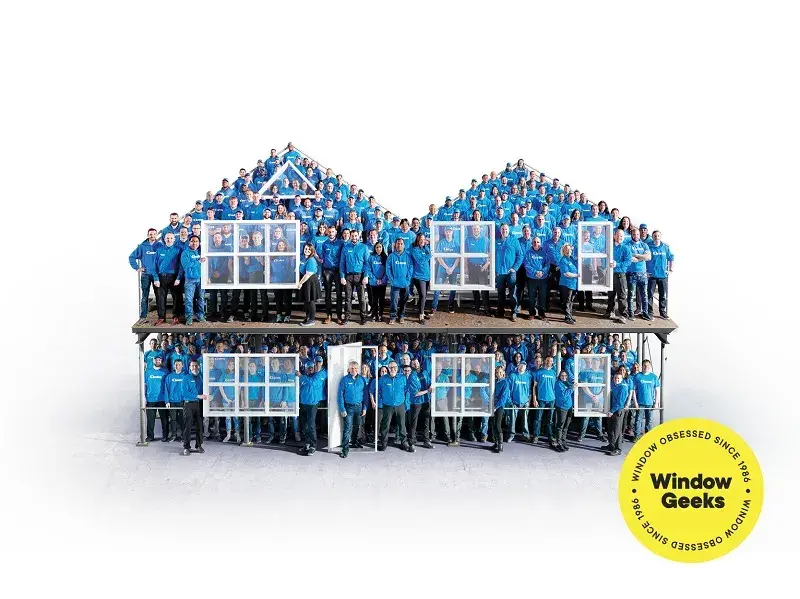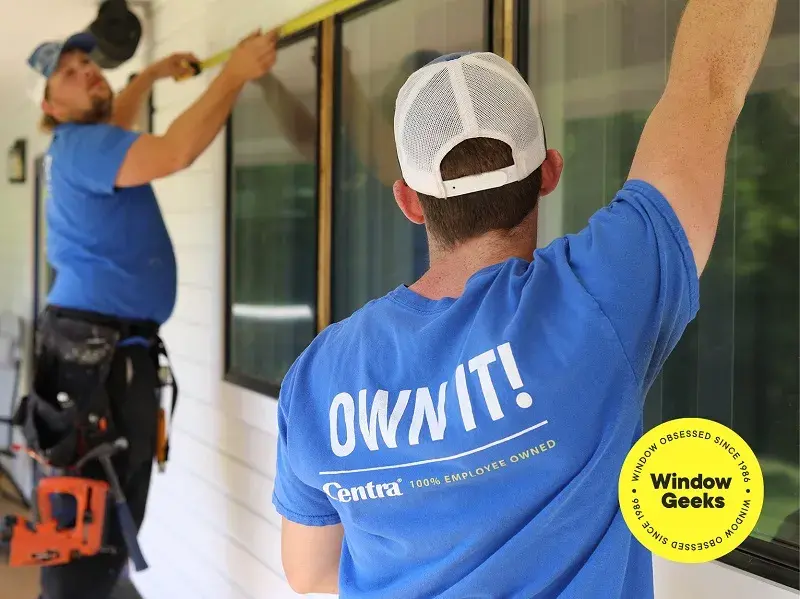Window Geeks
The Journey of Float Glass to Your Project Site
Geek Level 1
Have you ever wondered how float glass is created and how it gets to your site?
Given the business we’re in, we Window Geeks know just how important this journey is. We manufacture our windows, but there’s not much point in making those frames if there’s nothing to go in them.
When it comes to our glass, the process begins at factories in Washington and Oregon. These massive facilities house giant ovens, which can be as big as 36 feet wide and reach scorching temperatures of up to 3000°F. Liquefied sand and other materials that have been mixed and portioned into batches are floated over molten metal (tin) in these ovens, and the basic untreated raw flat glass is formed and then slowly cooled. Some of this material comes from recycled glass to make the process more sustainable.
These plants can produce hundreds of tons of glass using this method every day, and this is not a 9 to 5 and then rest kind of deal. They work 24 hours a day, 365 days a year.
Now the glass is ready to be tested and cut.
The next step of the process is defect detection. The glass goes through an advanced multi-step system, and any issues are automatically marked. Then, when the cutting begins, they are removed and discarded for re-use. The vigilance during this stage of the process makes imperfections in the finished product incredibly rare.
After the glass is cut to size, it heads to the packing station. It is carefully moved by machines (as it has been entirely up to this point) as untouched surfaces are important for the application of Low-emissivity (LoE) coatings. It is then packed up and shipped off. The process for our glass sees it taken to another plant, where insulated glass (IG) manufacturing occurs.
IG manufacturing can be done by the company who made the float glass initially, as it is for us, or it can be handled by the window manufacturer. If the window manufacturer prefers to do it themselves then it is sent directly to them after coming off the production line, where they’ll also do the cutting as well as the insulating. Either way, this is the step where the glass becomes a sealed IG unit. Two or more panes of clear or LoE coated glass are put together with a spacer layer which is filled with a dense gas (such as argon) for insulation.
The glass is then transported to our local manufacturing plant.
By the time we receive the glass, it should be ready to install into our high-performance window frames. We’ve been hard at work building customized windows for the customer, and no that the glazing is here, it’s nice to see it all come together. Every glass unit is made to order, with different sizing, coatings, and performance specs. They can’t be swapped out for other orders.
And voila! The high-performance windows are ready to go! Our team carefully transports them to your project site, where they can either be installed by our Window Geeks or by your project team.
The massive scale of the facilities where the process begins is worth keeping in mind.
Due to their huge size, it could take years to increase capacity in any meaningful way through expansion or the construction of new factories. When glass manufacturers suddenly find themselves working at maximum capacity, there is no ability to turn up the dial and produce more in the short term. This is relevant now, given the increase in demand for building supplies related to the pandemic. There are actually more supplies than ever coming to Canada, but demand has spiked to such an extent that things can still take a little longer than usual to get from point A to point B.
Watch this helpful video for a more in-depth look at float glass! If you’d like to understand this process more—or if you have questions about the current state of glass, contact your local Window Geek!
We are your certified Window Geeks
Centra Windows is not only the manufacturer but also the installer of its product, which enables us to offer a full warranty, eliminating any confusion between product performance and installation. We view the house as a system and understand how each of the elements must work correctly to maximize the comfort and energy efficiency of your home. Contact our local Employee Owners at 1-888-534-3333 or send us an email at info@centra.ca for more information about this topic and many more. You can also sign up for our biweekly newsletter for all the tips and tricks about the window industry.
Recommended for you

Geek Level 1
Window Geeks
The Importance Of Window Glass



